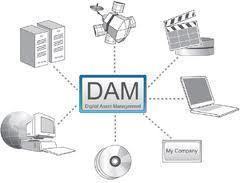An Application Service Provider or ASP provides “applications” as a service – specifically, software and services having to do with the information technology requirements of companies and individuals. The service offered by Application Service Providers may include processing credit card payments, providing customer relations management (CRM) services to businesses, or customized applications.
The operational concept is straightforward – a service provider identifies a function or activity that is common to a number of companies. The Application Service Provider then offers the service to its identified market for a fixed fee, in effect removing the personnel, equipment and logistical challenges inherent if each company is going to set up its own system.
The Need for Application Service Providers
Application Service Providers came about as a response to the changing business models brought about by the internet. The pioneers of Application Service Provider realized that there were simply not enough qualified or experienced IT professionals to handle the needs of many small- and medium-sized enterprises (most of the IT professionals were employed by major corporations). Moreover, the costs of developing specialized software for use by these businesses were becoming increasingly prohibitive.
In effect, Application Service Providers provided companies with a means of outsourcing their information technology needs, allowing the companies to focus on their core competencies (whether retailing, distribution or manufacturing) and allowing the Application Service Providers to handle key elements like web hosting, payments processing, etc.
The ISP: An Example
An Internet Service Provider (ISP) is an example of an Application Service Provider. Any individual or company can conceivably have direct access to the Internet if the said person or entity has the financial, manpower and technological resources to do so. Since this is not the usual case, businesses need an outside provider of these resources.
An ISP provides an important function. It handles everything necessary for Internet access – hardware, software, support technicians, etc. – and offers the service to companies and individuals who pay for the service.
Features of an Application Service Provider
- The service provider operates and owns the software or application, the hardware (e.g. servers) and the support personnel
- The application is made available to customers through the Internet or a “thin client” (a computer which depends on another computer to handle the majority of its functions, rather than doing data processing itself); and
- The customer is billed by the service provider on a fixed, time-bound schedule (usually on a monthly basis) or on a per-use format
The advantages of outsourcing to an Application Service Provider are clear. For one, it cuts down on the costs of either starting up or maintaining an in-house IT unit. For another, it ensures that software upgrades, new technologies and the like are made available by experts who are bound to provide these under clearly defined service agreements.
On the other hand, outsourcing to an Application Service Provider carries has some disadvantages – mainly in relation to matters of data and customer confidentiality (since an outside entity will have access to confidential data) and a lack of flexibility in terms of software choice (since one is bound to a single provider for software and services).




susan_weber7